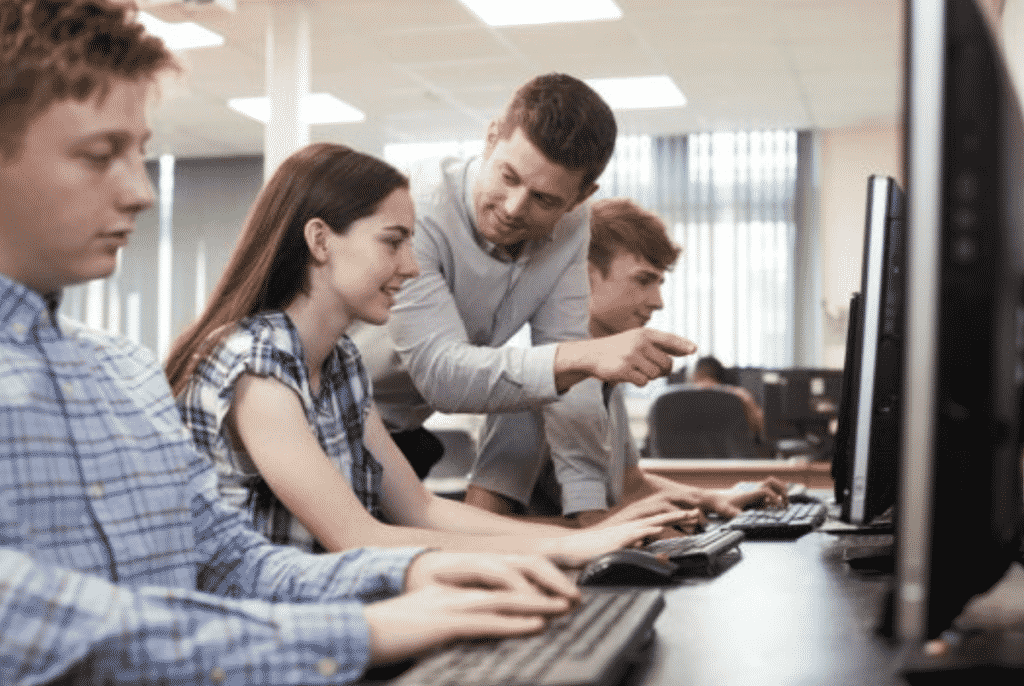Many students have faced much trouble while they enter a new school environment. It is essential for children to learn collaborative skills, so no new students have not encountered any problems. To overcome these challenges, we must teach cooperative learning strategies and develop emotional and social learning skills.
Cooperative learning includes experimentation on social learning and where the student needs to complete the project together having a common goal. It helps in encouraging interpersonal relations and building self-esteem. They allow working in a team collaboratively with other students. These kinds of activities help students to maintain a balance between needs and positive relations. It will enable students to come with creative problem-solving techniques and boost moral values. It is important for traditional classrooms or if you are using an app for teaching online.
Key Points About Co-operative Learning
- Maintaining a cooperative learning environment helps to maintain positive relations and appropriate behavior in the classroom.
- The best software for online teaching helps to connect with each group member easily with their smooth user interface and allows them to work together to meet a common goal.
- It allows positive face-to-face communication, which helps in decision making, writing feedback, personal responsibilities, and more.
- These group activities help build an effective working relationship and allow students to analyze the group processing time.
Know About the Cooperative Learning Activities
Jigsaw Puzzle & Fun
In this activity, teachers need to divide students into groups, and they will be assigned different sub-topics from some general topics. Students can work together and research the issues with other members having the same case and then come back to their group and teach every other student about that topic. Afterward, they need to bring all the pieces together to find the subject they are discussing on.
It helps students in communicating with other students and helps each other throughout the process. It makes other students work so that all their fellow members learn about the topic quickly. These help them to discover various topics without any assistance from teachers.
Fun Number Gaming Activities
In these activities, students get the number tags in their group, and all the students need to ask and discuss the question with their classmates and discuss it in a limited time given by teachers. Once the time is up, other students will take the turn and discuss their respective topics with the group. It helps students to learn and connect with similar ideas and think about them from a different perspective.
It helps students discuss and learn all the topics in small groups before discussing them with the whole class. It also allows students to listen to other people’s topics, engage with them and share their points with them. It also helps to keep the whole learning session engaging and interactive.
Picnic & Snack Party
These collaborative gaming activities include students standing in two circles, facing each other. The questions will be provided to students by their teachers, and they have to discuss the question with the fellow batchmates they are facing once they are done with the discussion, the students in the outer circle move a step ahead so they can ask the next question to other students and in this way discussion continues. It helps students to share their views with other students along with unity.
It allows the student to communicate with random students. While working together as a team, the student can develop positive relations with each other. It helps bring up confidence and makes students utilize their valuable time in learning, sharing, and discussing. The teacher must take care that the conversation adds value to student life and are engaging. Teachers can also help the students who are facing trouble in the discussion.
Final Words
We must develop a cooperative environment in the classroom instead of a competitive environment because It helps students develop new social learning experimentation and maintain a positive relationship with each other. Here the students work together to meet common goals, and the overall growth of students can be seen instead of the selfish approach of self-growth in the competitive environment.
It promotes cooperative interpersonal relationships between students and teachers, and the goal of collaborative skills is to improve all the students from their interpersonal skills to effective learning. They encourage students to work together with other batchmates as a team
